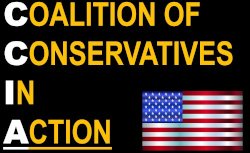One cannot win if they fail to understand the enemies tactics We keep wondering why we cannot rest control away from the overbearing controls of the Democrat Party. I feel this author has explained it in a way that we would all be aided by in our efforts to win back control. It is imperative that we understand the adversaries methods and weapons of choice if we ever want to win. Rob Wood From the WSJ book review: Not Accountable By Philip K. Howard (Rodin Books, 201 pages, $21.99) In 2008, six years after securing control over New York City’s public schools, Mayor Michael Bloomberg and schools chancellor Joel Klein put forward a program to tie teacher tenure to student performance. The goal was to reward the best-performing teachers with job security, encourage better student outcomes, and hold teachers accountable for demonstrated results. To most New York residents, it surely sounded like a good idea. To New York’s teachers’ unions, however, the program was utterly unacceptable. Union leaders lobbied Albany, threatened state lawmakers (who could pass legislation binding the mayor) with the loss of political support, and walked away with a two-year statewide prohibition on the use of student test performance in tenure evaluations. In short, the union thwarted the mayor’s authority over the city’s schools and commandeered the state’s legislative power. In this case and many others, a public-sector union served its own interests at the expense of the public’s. In “Not Accountable,” Philip Howard shows in vivid detail how such practices have made government at all levels unmanageable, inefficient and opposed to the common good. He argues that, in fact, public unions—that is, unions whose members work for the government—are forbidden by the Constitution. The argument, he notes, would have been familiar to President Franklin Roosevelt and George Meany, the longtime president of the AFL-CIO, both of whom championed private-sector labor but believed that public workers— teachers, fire fighters, policemen, civil-service employees— had no right to bargain collectively with the government. Mr. Howard, a lawyer and the author of “The Death of Common Sense” (1994), describes a world in which inefficiency is “mandated by contract,” and out-of-control, unfunded pension liabilities threaten service cuts. Meanwhile, arbitration stymies accountability, and a morass of work rules “add up to personnel policies where there’s always a reason not to do what’s needed.” Nothing much gets done, he says, because elected executives “no longer have effective authority over the operations of government.” Armed with vast revenue from members’ dues, nearly all such unions operate from the same playbook: elect pliant public officials as their future bosses; negotiate with those officials for more favorable pay, work rules and fringe benefits in the next round of collective bargaining; and push for laws that expand the government workforce and make reform impracticable. Political leaders intrepid enough to propose legislative fixes can expect fierce resistance and, with few exceptions, defeat at the hands of labor-aligned lawmakers and union-backed primary challengers. This is where Mr. Howard’s argument for the unconstitutionality of public unions comes into play. He sees political authority being usurped by union authority—or, to put it another way, politicians giving over essential governing choices to unions. In response, he cites the “nondelegation doctrine,” a legal theory positing that a branch of government can’t delegate its core powers and responsibilities to a private entity. This doctrine, a sibling of the one often raised when Congress tries to give broad legislative discretion to the executive branch’s administrative agencies, applies, he says, to public-sector unions: If these unions wield an effective veto over government operations— a private entity obstructing legislative or executive powers— then they contravene the constitutional assignment of public responsibilities. For state and local governments, Mr. Howard believes that the Constitution’s “Guarantee Clause” is also pertinent. It requires that the U.S. guarantee to each state a republican form of government. By taking away key decisions from elected officials, Mr. Howard says, public unions obstruct republican government. He also quotes Federalist 39, where James Madison describes a republican form of government as one that requires political officials to serve for a limited term of office and remain subject to removal through the ballot box. Structural union controls—in statutes and collective-bargaining agreements—evade such accountability by persisting across terms, impervious to executive authority. Worse still, laws in many jurisdictions allow unelected arbitrators to resolve public-sector labor disputes through binding decisions, permitting lawmakers to evade their constitutional role and avoid making difficult trade-offs. Mr. Howard makes a persuasive case, but the chances of seeing it affect American political life are, at the moment, remote. It would take a Supreme Court ruling to change current arrangements and understandings, and such a ruling would come about only after years of litigation—set into motion, presumably, by a mayor or governor who refuses to bargain collectively on constitutional grounds. Until then, legal challenges in different federal districts are unlikely to produce anything approaching national uniformity. State-court challenges in pro-union states may prove even less promising as unions and their allies fight to ensure that state high-court judges toe the line. Still, the goal is admirable and worth pursuing. In place of public-sector collective bargaining, Mr. Howard calls for a merit-based system for hiring and evaluating government employees. Instead of stultifying work rules that thwart creativity, he envisions a public-sector structure in which employees can use their talents and judgment to improve the functioning of government. Fundamentally, Mr. Howard views the Constitution, and the law generally, as a mechanism for both action and accountability, one that entrusts powers to inevitably fallible human beings while subjecting them to the checks of others in authority and, ultimately, to the will of the people. Mr. Howard’s civic-minded zeal for a well-functioning democracy—not to mention the appeal of his brisk, clear prose—should focus our attention on a vexing public problem and even inspire us to wrest back control of our government. Mr. Ketcham is a fellow and director of state and local policy at the Manhattan Institute.
![]()
